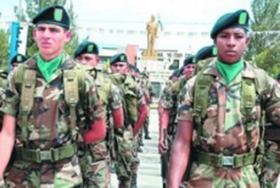In just the past week, the armed forces were given, or are on the verge of getting, new internal security roles in four Latin American countries.
In Peru, President Ollanta Humala declared a state of emergency over the weekend in the Cajamarca region, where protests by affected communities have halted the largest mining project in the country’s history. President Humala’s emergency decree “allows the military to help police reopen roads, schools and hospitals shut down for days by rallies and marches against the proposed mine,” reports Reuters.
In Bolivia, soldiers were deployed to support police in high-crime areas of Santa Cruz and El Alto. The decision came after several days of deliberations. Bolivia’s constitution allows the armed forces to support the police when the latter’s capacities have been “surpassed.” A vice-minister of Interior, Roberto Quiroz, had opposed the deployment, arguing that poorly trained conscripts (“17- and 18-year-old kids”) might not be up to the job.
In Honduras last Wednesday, the Congress quickly approved a temporary constitutional reinterpretation allowing the military to “take on policing roles” in the fight against violent crime. The El Salvador-based website El Faro observed that the turn to the armed forces was in part a response to the virtual collapse of Honduras’s poorly trained, abusive and corrupt police. President Porfirio Lobo said that an earlier temporary deployment of the military to support the police — “Operation Lightning,” which began on November 1 — brought a 36 percent drop in homicides since October.
In El Salvador, President Mauricio Funes defended a 2009 decision to give the military a greater crime-fighting role and, as the La Prensa Grafica newspaper put it, “softened the ground for a possible reform to give new functions to the army to fight organized crime, narcotrafficking, gangs and state corruption.” Funes, whose political party (FMLN) was once a guerrilla group that fought the government in the 1980s, warned that the country is in a “new war” whose “enemy” is “strongly armed criminal bands.” Funes added that critics who worry about “militarization” have “prejudices” that are “anchored in the past.” The speech came a week after Funes moved Defense Minister David Munguia Payes, a former general, into the position of minister of justice and security, making him the first official with a military background to head the Salvadoran police since the end of the country’s civil war. Meanwhile the new defense minister, Atilio Benitez, argued that the military needs new internal crime-fighting functions. Gen. Benitez said that El Salvador should follow the example of the steps that Honduras just took.
All articles linked from this post are from November 30 or later. Military roles are expanding very quickly.
Republished from Just the Facts with permission from Adam Isacson. See original post here.

